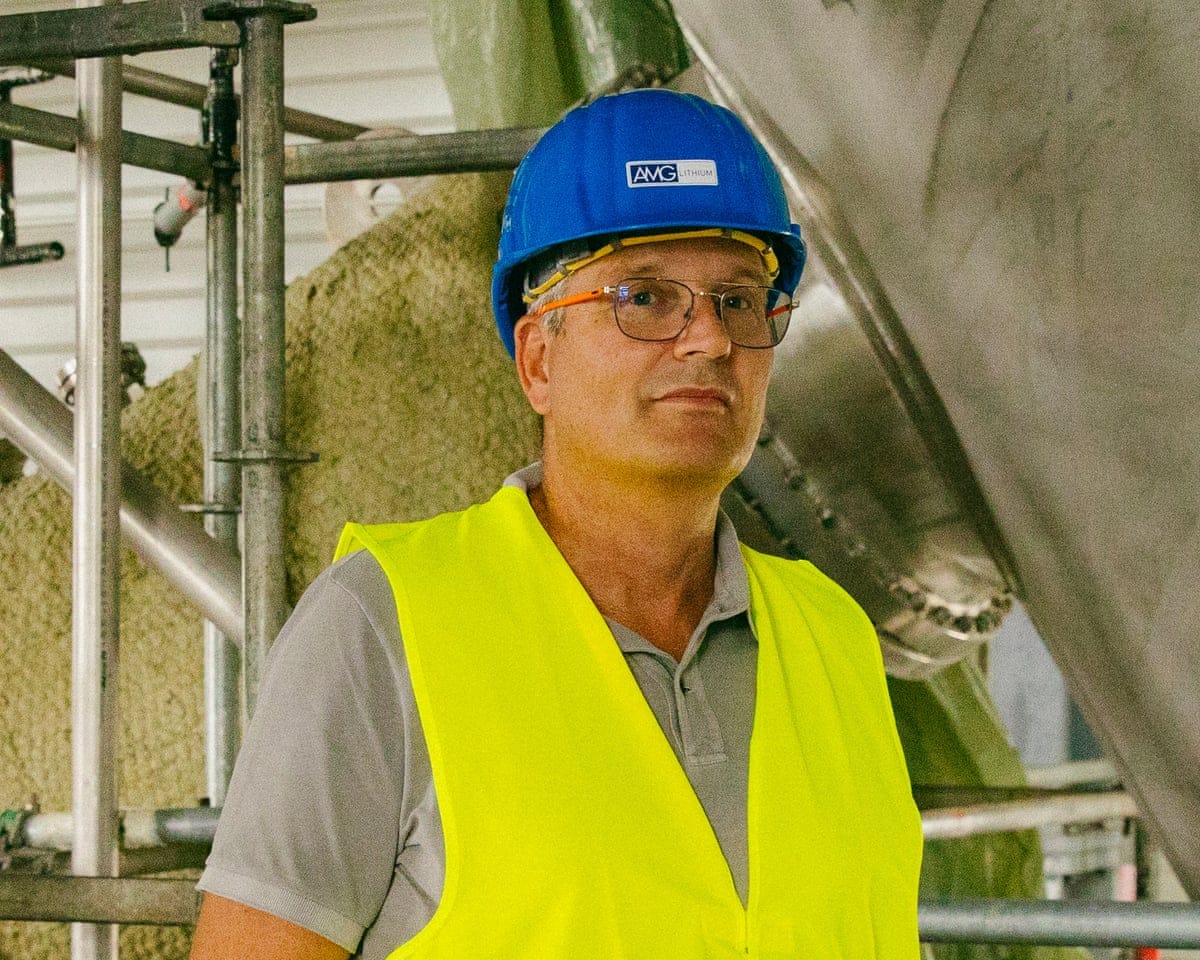The EU risks becoming little more than a “province of China” due to its failure to reduce reliance on the country’s supply of essential raw materials, which are vital for producing electric vehicles, smartphones, and wind turbines, according to a prominent German industry leader.
Stefan Scherer, CEO of AMG Lithium, the EU’s first lithium hydroxide plant for car batteries, is at the forefront of what some call a modern-day gold rush. However, Scherer warns that China will maintain its dominance in battery technology and continue to undercut European competitors unless immediate protections for local production are introduced. He argues that current EU policies and regulations have not yielded tangible results.
“Europe must achieve independence from China, or else it’s all just empty talk,” Scherer remarked during a visit to the AMG facility in Bitterfeld-Wolfen, a town in eastern Germany.
Earlier this year, European Commission President Ursula von der Leyen pledged that the bloc would “boost domestic manufacturing to prevent strategic dependencies, particularly in battery production.” Yet Scherer notes that many component suppliers face competition from lower-cost Chinese imports, ranging from steel to fully assembled batteries.
Without meaningful intervention, he warned, Europe’s climate objectives could be jeopardized. “You might as well apply to be a province of China. It’s a stark thought, but if you consider it carefully, we’re at a pivotal moment—one that isn’t tied to the Ukraine war but rather a fundamental shift in global dynamics.”
Scherer observed that the world economy had been built on the labor of workers in China and India, and the current global supply chain imbalance was, in part, the making of Western policymakers.
While not seeking preferential treatment, Scherer expressed confidence in AMG’s ability to compete in the automotive industry’s green transition. However, he remained doubtful that Europe would break free from Chinese dependence anytime soon.
AMG Lithium, which launched last year in Bitterfeld-Wolfen, plans to produce 20,000 tonnes of lithium hydroxide annually—enough for 500,000 electric vehicles. After completing its first test batch last month, it aims for full-scale commercial production later this year.
Scherer remains certain about European demand for AMG’s output but emphasized the need for immediate strategic investment in domestic resources and refining capacity. “This has to happen now. Even under the best circumstances, it takes five years to reach this stage.”
The company has invested five years and £150 million to reach its current position, with no major competitor expected for at least two to three years. “Progress is slow,” Scherer admitted.
He also criticized the EU’s recently enacted Critical Raw Materials Act (CRMA), calling it insufficient compared to measures taken by the US to strengthen domestic supply chains.
Read next

Ryanair plane had only six minutes of fuel upon Manchester landing, records show
Flight Narrowly Avoids Disaster After Storm Diversion
An inquiry has been launched after a Ryanair flight, struggling against severe winds during storm Amy last week, landed at Manchester Airport with only six minutes’ worth of fuel remaining.
The aircraft had been transporting passengers from Pisa, Italy, to Prestwick, Scotland, on

"Qantas customer data for 5 million exposed as hackers release info post-ransom deadline"
Hackers Leak Personal Data of 5 Million Qantas Customers on Dark Web
A cybercriminal group has released personal records of 5 million Qantas customers on the dark web after the airline did not meet their ransom demand.
The breach is part of a larger global incident affecting over 40 companies,

Investors flee record-high UK stocks as EU set to hike steel tariffs
Investors Withdraw Record Sums from Equity Funds Amid High Market Valuations
Data reveals that investors in the UK have withdrawn an unprecedented amount of money from equity funds over the past three months, driven by concerns over soaring stock market valuations.
According to the latest figures from Calastone, the largest

